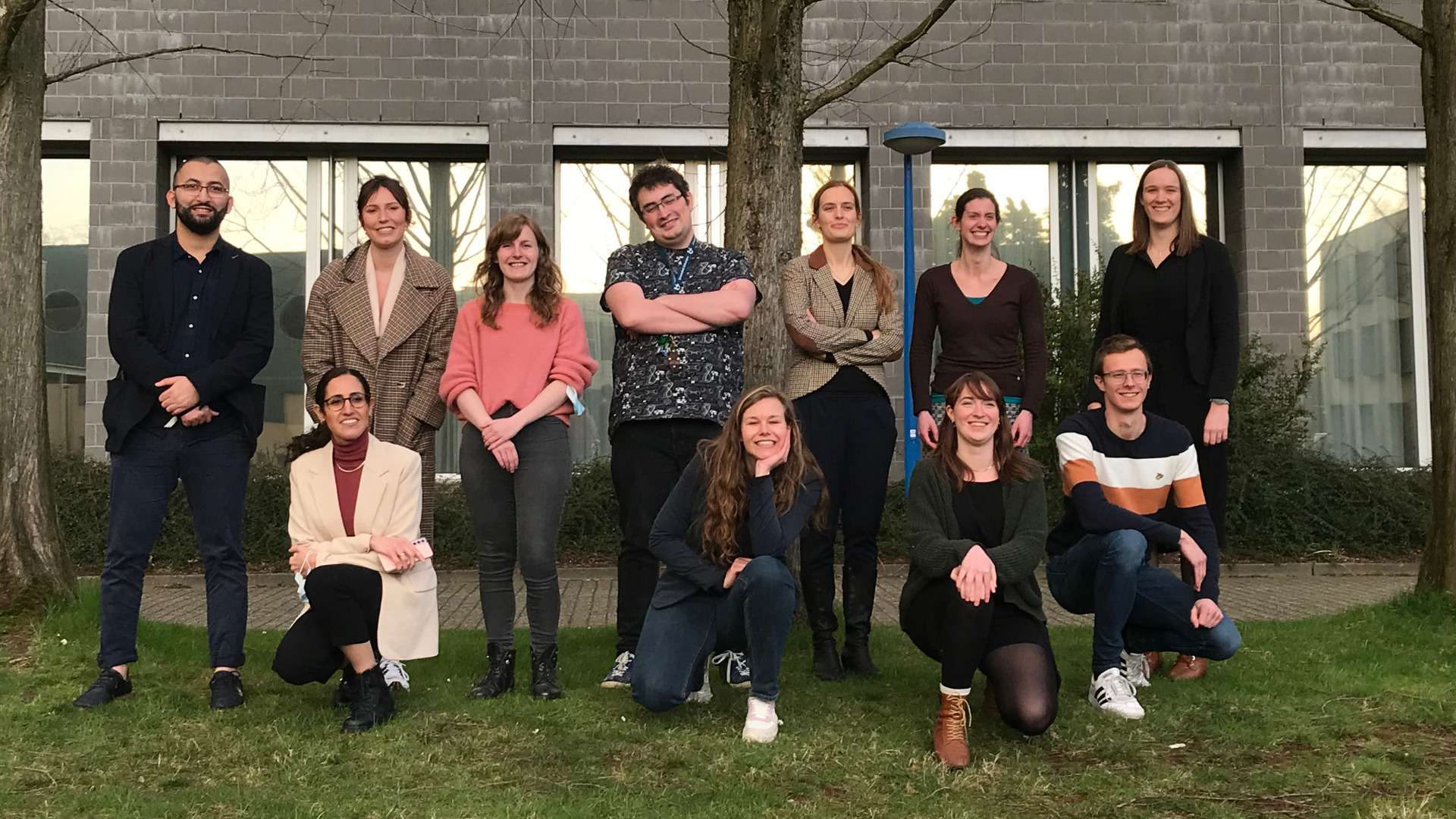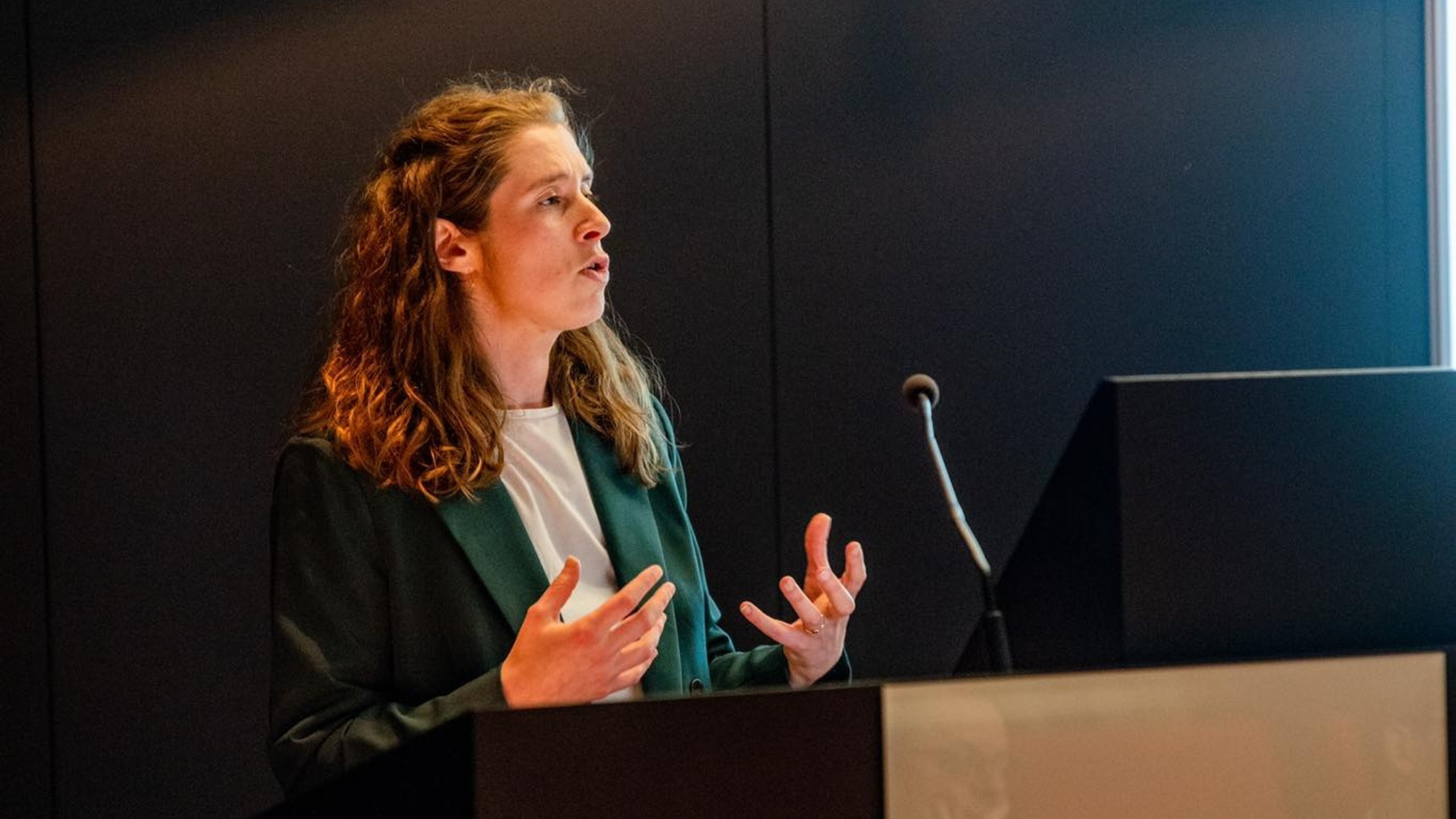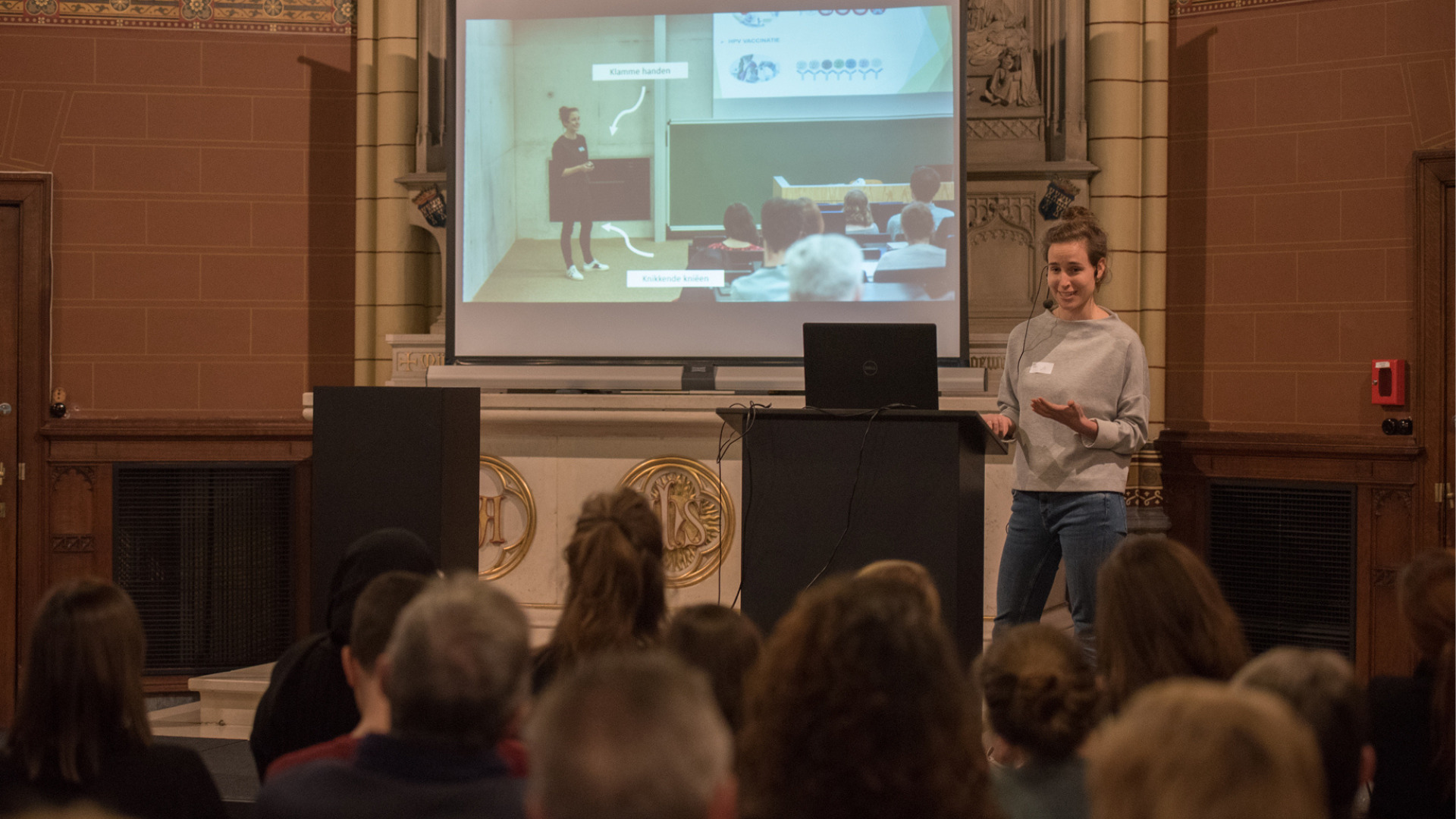Your research has something special that you want to share with a large audience. That little corner of knowledge that you fully immerse yourself in, to break it open and make it understandable for people outside your domain. Clarifying without simplifying. You choose which details to mention or not, and you engage your audience in a story that invites them to search for more information. Sounds challenging? Definitely, but it’s increasingly necessary for any researcher.
Every year the University of Antwerp’s Science Communication team organises PRESS>SPEAK, a competition that challenges PhD students to translate their research into a clear 5-minute presentation. This might sound cliché, but PRESS>SPEAK is actually much more than a presentation competition. I know, because in 2021 I participated in PRESS>SPEAK as a researcher, and then in 2022 I joined the team organising the competition. I personally really liked the fact that you don’t have to be very competitive to participate. The winner gets a nice prize, but my favourite memories are actually from well before the award ceremony.
Professional training
A few weeks before the competition takes place, a coach will give you a speed course on presenting. In groups of three to four PhD students, you learn how to turn your research into ‘normal-people-language’, which means that it’s ‘for-everyone-who-isn’t-a-researcher-in-your-field-language’. Afterwards, you get the opportunity to practise your presentation in front of your coach, who will provide you with a final round of encouragement and feedback.

Those sessions are a first introduction to some other PhD students, all from different faculties. We then met everyone for the first time on the big day itself. From PhD students who had only just started, to those who were already planning or had even completed their defence. Nevertheless, we all had something to say about our research and listened to each other’s presentations intently.
Getting started!
When I completed my PhD a little over a year later, I was very excited to join our Science Communication team – that’s how I ended up on the other side. Eleven young scientists got the chance to present their research this year. With topics ranging from metrics in journalism, atoms and respiration, to kidney transplants – the wide range of research being done at our university was once again covered.
‘I am only one year into my PhD, so it was quite challenging to stand here’, Haike (Faculty of Social Sciences) said. Yassine (Faculty of Medicine and Health Sciences) shared that this year’s participants also met up with each other outside the regular training sessions. ‘To give each other feedback’, he says. ‘The vibe in the group was really good.’
A secret weapon?
Just like in 2021, the PhD candidates presented their research in front of a jury as well as on camera. Colleagues, friends and family were able to cheer along from home, but unfortunately could not come to the venue itself. Sara (Faculty of Medicine and Health Sciences) decided to ‘focus on a jury member sitting right behind the camera, so it felt a little more natural’. For others, the biggest challenge was still the jury’s questions. ‘Those were quite challenging’, said Gils (Faculty of Medicine and Health Sciences). ‘They are not the kind of questions you’d get from fellow researchers!’

Lena Duchateau (Faculty of Pharmaceutical, Biomedical and Veterinary Sciences) became the grand winner of the 2022 edition with her original presentation ‘Google Maps for the brain’. She used the familiar Google Maps imagery to illustrate her research method. But actually, she had another secret weapon. She confided in us that she invited her friends over for dinner a week before PRESS>SPEAK. But there was one condition: they had to listen to her presentation and give her feedback.
In the 2022–2023 academic year, we will organise a new edition of PRESS>SPEAK. So plan that dinner, and come and show us the best of you! Registration is possible until 15 December 2022 through Pintra (info in Dutch).
Thanks to Laure Jacquemin for helping collect testimonials.


